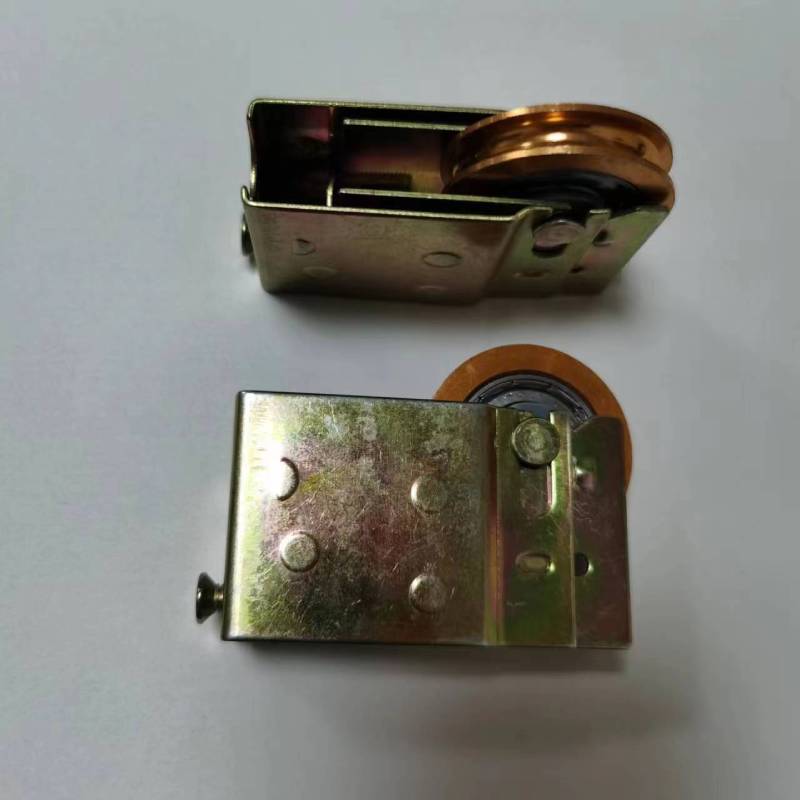Runner Wheels for Sliding Doors - High-Quality Solutions for Smooth Operation
Runner Wheels for Sliding Doors A Comprehensive Guide
Sliding doors are an increasingly popular choice for homes and commercial spaces alike due to their space-saving benefits and aesthetic appeal. One critical component that ensures these doors operate smoothly is the runner wheels, which facilitate the sliding motion. In this article, we will explore the various types of runner wheels available for sliding doors, their functions, and how to choose the right ones for your specific needs.
Types of Runner Wheels
There are several types of runner wheels designed for sliding doors, each with its unique features and strengths. The most common types include
1. Plastic Wheels These are lightweight and cost-effective, making them a popular choice for residential sliding doors. While they may not be as durable as metal options, high-quality plastic wheels can provide a smooth sliding experience for years.
2. Metal Wheels Typically made of stainless steel or aluminum, metal wheels are robust and ideal for heavy-duty applications. They are often used in commercial sliding doors or in situations where the door sees more frequent use. Metal wheels are less prone to wear and tear, offering longevity and reliability.
3. Ball Bearing Wheels Featuring ball bearings within the wheel assembly, these provide a smooth and efficient sliding motion. Ball bearing wheels reduce friction, allowing for effortless operation. They are commonly found in high-end sliding door systems and provide an excellent choice for heavy glass doors.
4. Adjustable Wheels Some sliding doors come with adjustable wheel mechanisms that allow users to raise or lower the door's height. This feature is especially useful for ensuring a snug fit against the frame and can help prevent drafts and noise.
runner wheels for sliding doors

Factors to Consider When Choosing Runner Wheels
When selecting runner wheels for sliding doors, consider the following factors
1. Weight Capacity Ensure that the wheels can support the weight of the door. Heavy doors require sturdy wheels made from durable materials.
2. Material Choose a wheel material that suits your environment. For outdoor sliding doors, consider rust-resistant materials, while indoor doors may benefit from quieter plastic wheels.
3. Track Compatibility Ensure that the runner wheels are compatible with the track system of your sliding door. Different tracks may require specific wheel designs.
4. Ease of Installation Look for wheels that are easy to install, especially if you are planning a DIY project. Many manufacturers provide clear instructions for installation.
Conclusion
Runner wheels are an essential component of sliding doors, affecting both functionality and ease of use. By understanding the different types of runner wheels available and carefully considering your specific needs, you can select the best option to ensure your sliding doors operate smoothly and efficiently. Whether for a residential or commercial space, investing in quality runner wheels can enhance the overall performance of your sliding door system.
-
Wrought Iron Components: Timeless Elegance and Structural StrengthNewsJul.28,2025
-
Window Hardware Essentials: Rollers, Handles, and Locking SolutionsNewsJul.28,2025
-
Small Agricultural Processing Machines: Corn Threshers, Cassava Chippers, Grain Peelers & Chaff CuttersNewsJul.28,2025
-
Sliding Rollers: Smooth, Silent, and Built to LastNewsJul.28,2025
-
Cast Iron Stoves: Timeless Heating with Modern EfficiencyNewsJul.28,2025
-
Cast Iron Pipe and Fitting: Durable, Fire-Resistant Solutions for Plumbing and DrainageNewsJul.28,2025
-
 Wrought Iron Components: Timeless Elegance and Structural StrengthJul-28-2025Wrought Iron Components: Timeless Elegance and Structural Strength
Wrought Iron Components: Timeless Elegance and Structural StrengthJul-28-2025Wrought Iron Components: Timeless Elegance and Structural Strength -
 Window Hardware Essentials: Rollers, Handles, and Locking SolutionsJul-28-2025Window Hardware Essentials: Rollers, Handles, and Locking Solutions
Window Hardware Essentials: Rollers, Handles, and Locking SolutionsJul-28-2025Window Hardware Essentials: Rollers, Handles, and Locking Solutions -
 Small Agricultural Processing Machines: Corn Threshers, Cassava Chippers, Grain Peelers & Chaff CuttersJul-28-2025Small Agricultural Processing Machines: Corn Threshers, Cassava Chippers, Grain Peelers & Chaff Cutters
Small Agricultural Processing Machines: Corn Threshers, Cassava Chippers, Grain Peelers & Chaff CuttersJul-28-2025Small Agricultural Processing Machines: Corn Threshers, Cassava Chippers, Grain Peelers & Chaff Cutters












